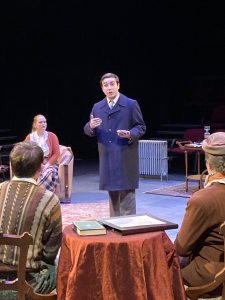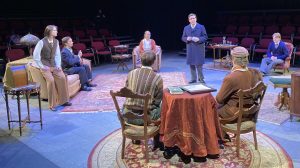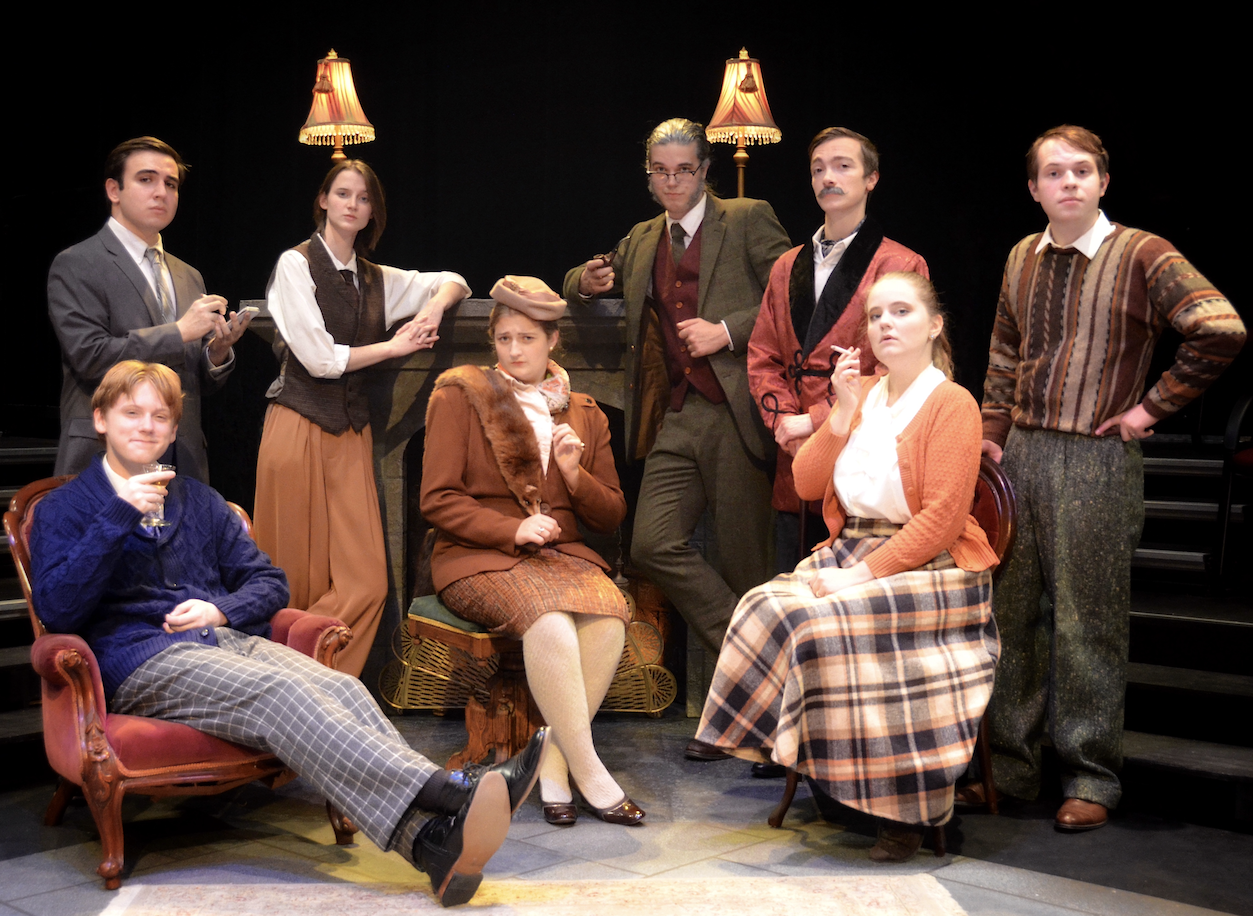No one else does a whodunit better than Agatha Christie.

One of her famous works, “The Mousetrap,” will be performed on campus Oct. 14 to Oct. 17 in the Frances Frazier Comstock Theater Lab.
With over 25,000 performances, this is the longest-running production in London’s West End, yet Concordia will be its first showing in the F-M area. The theater has only 99 seats available per night and tickets can be purchased on the Concordia website.

“As much as people must have heard of this play, they have never seen it before,” Concordia sophomore Carlos O’Ryan said.
O’Ryan is cast in the role of Detective Sergeant Trotter, an investigator who comes to solve the murder of Maureen Lyon at Monkswell Manor.
Upon arriving, it soon becomes apparent that the murderer is among the five guests or two owners—and that they are all trapped there due to a blizzard. As the investigation continues, secrets and false identities are revealed up until the climactic end.
“No one is who they say they are. It is very melodramatic,” sophomore and stage manager Liv Meinders said.

In addition to this production being the first in the F-M area, Christian Boy, the director, technical director and set designer, said this production is also unique due to its stage being in-the-round.
The typical theater experience is on a proscenium stage, which has the audience on one side of the stage. To be in-the-round means there will be audience members on all four sides of the action. This creates both challenges and opportunities for all involved in the production, from the audience to the cast.
“There are a lot of creative solutions you have to deal with,” Boy said. “Some shows are very proscriptive in the set.”
“The Mousetrap” is written for a proscenium stage, calling for six total entrances onto the stage, but in-the-round, Boy only has three available. Because of this, Boy and the crew have had to find ways to create these motions without changing the script or narrative storytelling.
Moreover, Meinders said stage props were carefully picked; for instance, lower furniture pieces are included so as not to block the views of any audience members.
Despite these challenges, this stage offers a level of subversiveness that a typical stage does not. The front row is no more than six feet away from the set and the secrets unfolding, creating a sense of intimacy.
“For the performers, it’s much more visceral. You can see the faces and reactions of your audience as opposed to a proscenium stage where you are looking out into the dark,” Boy said.

Boy said this close proximity allows for a “higher level of realism” in that the performers can focus on the “minute details” of their performances and their interactions with each other.
“I really love doing these sorts of plays that rely on an ensemble cast, where you are in a small group and you can play off of each other,” O’Ryan said.
Although this production came with some barriers, Boy said that often the best part of a production is the ability to show off all the hard work that went into it.
“We can’t have a theater without an audience. I succeed in theater when I am able to evoke emotion from the audience,” Boy said.
Meinders shares this feeling although she primarily works off stage. Despite the perceived distance she has from the action, Meinders said attending campus theater is not just about viewing the production, but of supporting all the hands that make it happen.
Boy encourages students to participate in these events as it is an integral part of a liberal arts education—an idea that Concordia supports “philosophically and financially,” according to Boy.
“There are students who come to Concordia because they want a life in the arts, but all students will leave here with a life informed by the arts,” Boy said.

